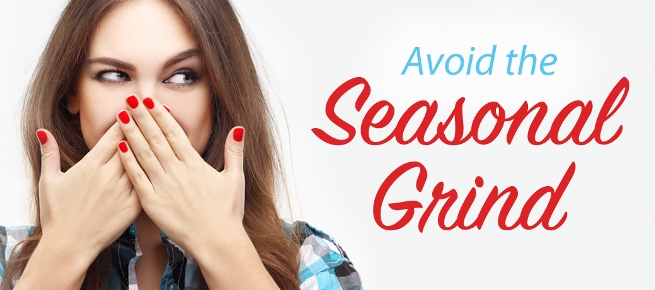By admin
18 Jan, 2016
Dental Health, Dental Tips, General Dentistry, General Health
dental hygiene, gum disease, oral cancer, oral health, overall dental health, routine dental exam, toothpaste with fluoride

When you think about visiting the dentist, you most likely think about keeping your teeth white and straight, and having an attractive smile. What you may not realize is that maintaining good oral health has value beyond the obvious aesthetic rewards of a beautiful smile. Dedication to maintaining good at-home oral hygiene practices and making regular visits to the dentist protect your overall health and can help you avoid serious health complications and disease.
Healthy Mouth, Healthy Body
Recent research has linked gum disease to health problems that affect women and men of all ages. Gum disease is a bacterial infection, and as a result, it can enter the bloodstream and cause other health issues:
- Heart disease: Gum disease increases the risk of heart disease and doubles the risk of having a fatal heart attack. Heart disease is the number-one killer of women in America.
- Stroke: Studies have linked gum disease to strokes, with a large percentage of those who have experienced a stroke shown to have been simultaneously suffering from periodontal infections.
- Pregnancy outcomes: Gum disease during pregnancy can increase chances of a premature birth.
Warning Signs
While regular visits to the dentist can help you maintain good health and prevent certain diseases, your oral health can tell your dentist a lot about your overall health as well, and it can raise red flags for health conditions that you may be unaware of. These conditions include:
- Oral cancer: Every time you go in to the dentist for a routine checkup, they screen for oral, head, and neck cancers. When it’s caught early, you have a good chance for a full recovery.
- Diabetes: Gum disease can be a sign of diabetes. People with diabetes often suffer from gum disease, as it reduces the body’s resistance to infection, leaving the gums susceptible to disease.
- Osteoporosis: Periodontal bone loss and tooth loss can be a sign of osteoporosis, which causes bone to become weak and brittle. Early diagnosis of osteoporosis can lead to treatments that can help stave off bone loss and keep them, as well as your teeth, strong and healthy.
- Alzheimer’s disease: Studies suggest that when tooth loss occurs before the age of 35, it can be an early sign of Alzheimer’s disease.
Knowledge Is Power
So how does knowing the connection between whole health and your dental health help you? Now that you know there is such a strong connection, you understand the importance of having a provider who understands it and uses this knowledge to help you make general health care decisions. It also helps you fully understand the importance of maintaining excellent at-home dental hygiene practices and the best oral hygiene basics:
- Brushing twice daily
- Flossing every day
- Attending two routine dental exams annually, with cleanings
- Regularly using a toothpaste with fluoride and a rinse
- Following a healthy diet that is designed to improve both oral and whole health
To find out what your oral health says about your overall health, schedule an appointment with our provider today.
Sources:
http://www.adha.org/resources-docs/7228_Oral_Health_Total.pdf
http://www.mayoclinic.org/healthy-lifestyle/adult-health/in-depth/dental/art-20047475
More
By admin
15 Dec, 2015
Dental Health, Dental Tips, General Dentistry, General Health, Lifestyle
bad breath, dental health, dental hygiene, fresh breath, holiday dental tips, oral health, oral hygiene

Mistletoe has been hung, setting blissful, kissing booby traps for the unsuspecting, and when the ball drops, lips will lock everywhere.
During the month of December, your oral health and hygiene needs to be on point!
Brushing and rinsing twice a day, as well as daily flossing, helps keep your mouth healthy but doesn’t necessarily ensure fresh breath that will last all day long. And during a season hallmarked by the unexpected, one does not want to be caught face-to-face suffering from a bad case of halitosis. So what can you do to improve your chances of being 100% smoochable should the opportunity arise? Read on for breath-saving tips that are sure to improve your chances of ringing in the New Year with more than a smile on your lips.
Food for Thought
When you eat, food is absorbed into your bloodstream and expelled out of your lungs when you breathe. This means that you may suffer from bad breath even when your diet is healthy and balanced. The following foods are notorious for turning breath foul, so ingest them sparingly or at least with extreme caution.
- Garlic: This powerful herb can turn a bland dish into a delectable culinary work of art. Its versatility allows it to be used in a variety of cuisines and eaten or used for cooking whole, crushed, chopped, or dried and powdered. Garlic is also renowned for its health benefits and its ability to ward off vampires. While it does all of these amazing things, its major drawback is its ability to turn the odor of your breath into a scent so repellant that even the most determined admirer would have great difficulty overcoming their repulsion long enough to plant a wet one on you. Also note: If eaten regularly and in large quantities, it can affect your body odor negatively as well.
- Onion: While onion is not as powerful as garlic, its fellow odoriferous bulb, this herb is commonly used to enhance the flavor of a large range of dishes. It is often served raw in salads, added to soups and other savory dishes, and comes in a large variety of types and flavors. The types of onion include brown onions, green onions, leeks, pearl onions, shallots, and more, and while they are all very different in appearance, texture, and flavor, they all have one thing in common: They make your breath stink.
- Coffee: Too much coffee gives you bad breath. It’s a hard truth to face, especially since dates at coffee shops are where many love stories begin. Coffee is wonderful at delivering a warm wake-up call each morning and nurturing its consumer into a state of alertness that allows them to take on the day. While this is a deeply appreciated trait, what few people realize is that it’s also one of the most dehydrating drinks you can consume. We aren’t suggesting that you quit coffee for good, but if you want the confidence that comes with fresh breath, you should limit your consumption to a cup a day.
- Alcohol: Don’t give up your Champagne toast at midnight on New Year’s Eve, but do watch your overall consumption of alcoholic beverages. That beer you look forward to at the end of each day and that weekly happy-hour cocktail you consume with your co-workers is drying out your mouth. When your saliva flow runs low, bad-smelling bacteria sticks around and turns breath bad.
Battle Bad Breath
There are a variety of simple ways you can actively ward off and battle bad breath on a daily basis.
- Stay hydrated: Drink water all day long. It washes away leftover food particles and the bacteria that can lead to decay, and it helps you avoid dry mouth. Aim for six to eight 8-ounce glasses of water a day.
- Clean your tongue: Residual buildup between your taste buds and the fold in your tongue can affect your breath negatively. Keep your tongue clean by brushing it regularly. You can also find very effective tongue scrapers at most drugstores.
- Chew gum: Sugarless gum with xylitol keeps your breath fresh while cleaning your teeth. Gum stimulates the flow of saliva, which washes unwanted debris from your teeth.
- Snack on this: Crisp, fresh fruits and vegetables turn on the flow of saliva and decrease the occurrence of bad breath caused by hunger. When you become hungry, especially when you are on calorie-restricted diets, the acids in your stomach build up and give your breath a nasty scent.
- Eat your garnish: Parsley is a popular garnish on many of the dishes served in restaurants. Most people think the only purpose it serves is to pretty up your plate. But parsley contains chlorophyll, which is a powerful breath and post-meal romance saver.
If you want to feel completely confident this holiday season, give your Lancaster dentist Dr. Douglas Weber a call at (661) 952-7865 and set up a cleaning. We will make sure your smile is New Year’s Eve ready, so you can enjoy kissing this year goodbye.
More
By admin
02 Dec, 2015
Dental Health, Preventive Dental Care
charity, floss, gifts, holidays, mouth rinse, oral health, oral hygiene, toothbrush, toothpaste

The holiday season is often touted as “the best time of the year!” While this is true for many, for some it can be the most difficult. For individuals and families coping with homelessness, in crisis, or dealing with a time of personal hardship, this time of year can be intensely challenging to face and even harder get through. When basic needs aren’t being met, the gift-giving season can take a toll. So during this season of abundance, consider giving someone less fortunate their smile back.
Toothbrushes, toothpaste, floss, and mouth rinse are everyday items that are often taken for granted. But these items enable people to enjoy one of the greatest gifts of all: a healthy smile. During difficult times, the smallest acts of kindness can mean the world for those in need. This season consider donating these basic tools for maintaining oral health and hygiene to a charity that supports those in need. If you aren’t sure where to start, consider some of the options listed below.
Donations for the Homeless
According to the National Alliance to End Homelessness, in January 2014 there were 578,424 people experiencing homelessness. This number includes families with children and individuals. National charities, like Catholic Charities, support the homeless, have a home base in most cities, and often take donations throughout the year and over the holidays. Most local homeless shelters also take donations and are in desperate need of oral hygiene products as well. Neighborhood churches put an extra effort toward making sure that everyone stays warm and cozy, and that everyone feels the spirit of community during the winter months. They are a great point of contact for your donation.
Domestic Violence Shelters
Somewhere between 2 million and 4 million women are victims of domestic violence each year. Many of them have children, and they may have little time to gather personal items before fleeing their abusers. They come to shelters without their clothing or personal supplies. Shelters are always looking for hygiene supplies and personal care products, especially around the holidays. Dental hygiene care pages that include child-friendly toothpastes, rinses, and brushes are appreciated and put to good use.
Ronald McDonald House Charities
Ronald McDonald House Charities provide a home-away-from-home for families of seriously ill children. The houses run year-round and offer a place for parents and family members to stay so that they can be close to their children while getting a break from the hospital atmosphere. They have many of the same comforts as home, including hot showers, laundry facilities, snacks, Internet access, and television. The Ronald McDonald House wish list includes individually packaged toothbrushes and toothpaste — a simple way to encourage a smile.
Budgets run tight during this season of giving. Oftentimes the idea of charitable giving can feel out of reach for many of us. It’s important to remember that something as small as a toothbrush can make all the difference in the world for those facing hardship. Every thoughtful act that comes from the heart ends in a smile.
Contact your Lancaster dentist Dr. Douglas Weber at (661) 952-7865 to find out more about how you can give members of our community the gift of a smile this holiday season!
More
By admin
30 Nov, 2015
Dental Discomfort, Dental Tips, General Dentistry, Lifestyle, Preventive Dental Care
bruxism, clenching teeth, face pain, grinding teeth, grinding teeth due to stress, headache, jaw pain, mouth guards, tmj causes

Protect Your Teeth From Holiday Stress: Avoid the Seasonal Grind
The holiday season is a time of year that comes with many things: visits from loved ones, weekly parties, a multitude of shopping trips, long hours spent in the kitchen, and stress-induced bruxism. Stress isn’t always a bad thing; in fact it can even be good in small doses. It can spur excitement, joy, and eager anticipation, and it can even function as that extra bit of motivation that you need to get everything on your to-do list done. Even when the outcome of the stress you are experiencing is positive, the effects it has on you physically can be negative.
What Is Bruxism?
The gradual onset of mild to moderate head and neck aches, jaw pain, and sensitive teeth can signal that stress is beginning to take a toll and that you might be suffering from a condition called bruxism. Bruxism is a condition in which you clench and grind your teeth throughout the day and night. The clenching and grinding can become so hard and loud that it can be heard by partners and loved ones within the affected individual’s living space.
Some individuals only suffer from short bouts of bruxism. But if you begin to experience any of the following associated symptoms with regularity, you should call and set up an appointment with our provider immediately.
Signs and symptoms that indicate you could be suffering from bruxism include:
- Worn tooth enamel
- Face pain rooted at the jawline
- Earache-like pain
- Headache in the temple area
- Sores from chewing or biting the inside of your cheek
- Grinding teeth during sleeping hours
If left untreated, bruxism can lead to more serious conditions that may require extensive and expensive care to resolve. These conditions include:
Damaged teeth: Individuals who suffer from bruxism end up clenching and unclenching their teeth all throughout the night. The pressure they put on their jaws can equate to 250 pounds or more worth of force, which can cause extreme wear and tear on teeth. Tooth sensitivity is the least of the repercussions this type of pressure can have on oral health. Chipped, cracked, and severely worn teeth can result, requiring extensive restorative treatments.
TMJ: TMJ is disorder of the temporomandibular joints that causes pain in the jaw, head, and neck areas. It can cause the jaw muscles to spasm and make it difficult for sufferers to open and close their mouths normally. Treatments may include Botox injections, medications that relax muscles, and protective nighttime mouth guards.
Sleep disturbances: Bruxism ranks as the third most frequent abnormal sleep behavior. Some suffers become aware of their condition after seeking out help for severe sleep deprivation and exhaustion. They have no idea that they have been grinding their teeth at night, nor that it is the cause of their daytime drowsiness.
Who’s at Risk?
Risk factors that increase your likelihood of suffering from bruxism include:
- Age: Bruxism is most common in children but can extend into adulthood.
- Stress level: If you have a high level of stress or an increase in anxiety, you may begin to experience the signs of bruxism.
- Substance intake: Smoking tobacco, drinking caffeinated and alcoholic beverages, or taking medications that have stimulants in them may increase the risk of bruxism.
Diagnosing Bruxism
If your dentist suspects that you have bruxism, he or she will perform an exam and evaluate you for the following:
- Damage to your teeth, the bone that supports them, and the soft tissues inside your mouth
- Pain and tenderness in the jaw and mouth area
- Common dental abnormalities that are often indicators, like broken, worn-down, or missing teeth and poor tooth alignment
If you have signs of bruxism, our dentist may choose to look for changes that may have taken place over the course of your visits. Your exam may include x-rays and questionnaires.
Treatments
In the case of children affected by bruxism, treatment is rare. The majority of children age out of bruxism. Adults who grind their teeth enough to cause damage and inflict pain have treatment options that include dental protection devices, such as mouth guards and splints, and corrective dental treatment plans designed to align teeth properly. Realigning teeth may require braces and, in severe cases, oral surgery.
If stress is at the root of a patient’s bruxism condition, our dentist will refer them to a therapist that specializes in stress management and behavior therapy. In some cases, medications such as muscle relaxants may also be prescribed.
The holiday season is a time of year to be enjoyed. You don’t have to let the excitement and anticipation take an unpleasant toll. If you are experiencing any of the symptoms that may indicate you are suffering from bruxism, call Dr. Douglas Weber at (661) 952-7865 to schedule an appointment today.
More
By admin
22 Nov, 2015
Dental Tips, General Dentistry, Lifestyle, Preventive Dental Care
dental health, healthy fall foods, healthy pumpkin prepration, healthy recipe, holiday dental tips, oral health, oral health benefits of pumpkin

Dentists Say, “Back Away From the Spiced Latte! But the Pumpkin Can Stay.”
It probably comes as no surprise that the Pumpkin Spice Latte is Starbucks’ most popular seasonal drink of all time. Everything about the pumpkin’s color, aroma, and savory flavor screams fall. Every year coffee enthusiasts eagerly await the release of this highly anticipated beverage, then flock to the coffee shop as soon as it becomes available. At least that is how it has gone for the better part of the last 12 years, since its inception in 2003.
But the Pumpkin Spice Latte isn’t your average cup o’ joe. Recently, the beloved libation has come under fire for the large amount of calories (380) and sugar (50g) it contains. Health and fitness professionals are urging people to consume it like they would any other dessert: in moderation. And while most health professionals are worried about the damage the Pumpkin Spice Latte can do to people’s waistlines, dentists are more concerned with the impact it could have on their patients’ teeth.
The bad news is that any way you look at it, the amount of sugar in your beloved Pumpkin Spice Latte, along with the length of time you spend sipping it down, is a recipe for tooth decay. The good news is that you can still satisfy your autumnal craving for pumpkin goodness by preparing and consuming it in different, delicious, healthier ways — and actually improve your dental and overall health while doing it.
Health benefits related to consuming pumpkin are plentiful. This vitamin-packed fruit can please both your nutrition/fitness professional and your dentist by protecting your teeth and whole health. Pumpkin provides:
- Zinc: Zinc is your mouth’s best friend. It plays a key role in healing wounds, which does wonders for damaged soft tissues inside your mouth, or gums that are healing from gingivitis-induced bleeding. Zinc is also considered an anti-plaque agent and is added to toothpaste to prevent buildup.
- Vitamin A: Vitamin A aids in the flow of saliva, which is key for washing bacteria from the mouth. It also plays a key role in healing soft tissues.
- Vitamin C: Vitamin C is key for maintaining a healthy immune system and fighting off infections. It’s good for your mouth and your overall health.
- Magnesium: Magnesium and calcium work together to create strong, protective enamel that can resist decay. Without the proper amount of Magnesium in your diet, your enamel becomes soft and susceptible to cavities.
- Fiber: Pumpkins are packed with fiber, which is important for maintaining excellent overall health. Fiber helps with weight control, and fiber-rich foods help stimulate the flow of saliva (your best natural defense against tooth decay).
If you are looking for a way to get your pumpkin fix this season while keeping your teeth and physique fit, minimize or eliminate the sugar. Consider replacing your daily spiced latte with these healthy pumpkin preparations:
Pumpkin seeds: From the store or straight from the gourd, these baked snacks are packed with flavor and good-for-your-teeth vitamins. They are easy to prepare and pack for lunch or an in-between-meal snack.
Pumpkin smoothie: Incorporate canned pumpkin into your breakfast or workout smoothie. It pairs well with coconut milk and almond butter. Throw in some pumpkin spice and maple syrup and your morning meal will be transformed into a healthy liquid version of the traditional pumpkin pie.
Baked pumpkin: You can make a tasty meal out of pumpkin by simply baking it with cinnamon and adding a little bit of butter. Pumpkin works as the main course but is also perfect as a side dish.
Pumpkin seed oil: One easy way to enjoy the health benefits that pumpkin has to offer is by incorporating pumpkin seed oil into your cooking. It adds a nutty seasonal taste to whatever dish you are preparing and is perfect for keeping you in that seasonal holiday mood.
Being dedicated to your physical and dental health doesn’t mean swearing off the Pumpkin Spice Latte for good. It just means taming your daily addiction and satisfying your pumpkin craving with snacks and dishes that are low in sugar and high in vitamin-rich goodness.
Call our Lancaster, CA dental office today at (661) 952-7865 and check up on your oral health. This is the perfect time to talk to Dr. Douglas B. Weber to find out more about how you protect your oral health through the holiday season.
More





